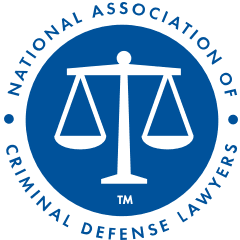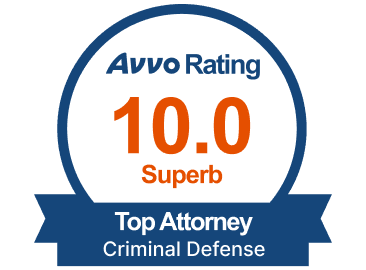Fort Worth Lawyer for Those Accused of Engaging in Organized Criminal Activity
Have you been accused of engaging in organized criminal activity in Texas? If so, you may be facing enhanced penalties for the offense you are accused of committing or conspiring to commit than if you had just been accused of committing said offense by yourself.
And because accusations involving organized criminal activity are often tried by special prosecutors who specialize in organized crime, it’s important to hire an attorney with the right experience to help you both fight the underlying charge and disprove the accusation of involvement of organized crime.
The Texas organized crime attorneys at Sellers Law Firm possess the necessary experience to help you fight these enhanced charges. Call us at 817-345-7978 or contact us online to request a case evaluation today.
The best attorneys in Texas
“My wife and I are so grateful. Frank Sellers, thank you. I owe you guys my life. You guys defended me to the end. I had the very best attorneys anyone would want to have on their side. Contact Sellers Law Firm Law Firm first if you’re ever in need of an attorney. You will thank me later for doing so. The best attorneys in the entire state if Texas.”
Satisfied Client
What is “engaging in organized criminal activity”?
Contrary to popular belief, engaging in organized criminal activity is not a criminal charge in and of itself. Rather, engaging in organized criminal activity refers to a criminal act performed with a certain kind of intent—“the intent to establish, maintain, or participate in a combination or in the profits of a combination or as a member of a criminal street gang.” A “combination,” in this case, means “three or more persons who collaborate in carrying on criminal activities.”
Criminal actions that can constitute engaging in organized criminal activity include but are not limited to:
- Murder/capital murder
- Aggravated robbery
- Aggravated assault
- Aggravated sexual assault
- Gambling offenses
- Firearms offenses
- Drug manufacturing, delivery, and distribution
- Unlawful interception of wire or electronic communications
- Promotion of prostitution
- Promotion, possession, or distribution of unlawful obscene materials (Child pornography, revenge porn, etc.)
For a full list of criminal actions of charges eligible for enhanced penalties due to organized criminal activity, see Section 71.02 of the Texas Penal Code.
What is considered organized crime in Texas?
Despite what you might see in movies, you don’t have to be in the Mafia or a large street gang to engage in organized criminal activity. In Texas, there are two types of criminal organizations:
- Criminal street gangs
- Combinations
Criminal street gangs
Under Texas law, a criminal street gang is defined as “three or more persons having a common identifying sign or symbol or an identifiable leadership who continuously or regularly associate in the commission of criminal activities.” Things like gang tattoos, photographs of the accused flashing gang signs, wearing gang colors or uniforms during the commission of a crime, or any other act that signifies membership in a criminal street gang can be used by prosecutors to allege that you were engaging in organized criminal activity in addition to the original accusation(s).
Combinations
Again, in the context of organized crime, a combination is defined as three or more persons who collaborate in carrying on criminal activities, but this definition is broader than it seems. Unlike involvement in a criminal street gang, establishing that a person did something as a member of a “combination” does not require the person knew any other member previously, or even at the time of the alleged offense. Further, a combination’s members don’t have to be fixed—membership can change from time to time. Finally, participants can be considered a combination even though they operate with one another from a distance, doing seemingly “arms-length” deals.
Committing a crime vs. conspiring to commit a crime
Under Texas law, you don’t necessarily have to commit a crime in order to engage in organized criminal activity. You can also be prosecuted for conspiring to commit a crime as part of a criminal street gang or a combination.
In Texas, a person “conspires to commit” a crime when the person agrees with one or more accomplices to commit a criminal offense, and then someone from the group takes some form of “overt act” toward accomplishing the agreement. Any steps taken toward the commission of the agreed-on crime (even non-criminal steps) can be deemed overt acts, such as:
- Acquiring a weapon as part of an established criminal plan
- Reaching out to a potential buyer or seller for illegal goods/services
- Purchasing supplies (ex. Buying masks and bolt cutters following a discussion about stealing cars)
These and other “overt acts” can be used to allege criminal conspiracy with or without any tape-recorded verbal agreement or signed written agreement to commit a crime. That’s because the agreement can be proven circumstantially. For instance, if you and your friend are both gang members and are caught in possession of ski masks, crowbars, and a list of area homes and their owners’ work schedules, your ownership of these items could constitute conspiracy to commit burglary of a habitation as part of a criminal organization.
Penalties for engaging in organized criminal activity
Being accused of organized crime in Texas means you could be hit with more severe penalties if convicted of committing an underlying offense. In general, if you’ve been accused of engaging in organized criminal activity, then the penalty for committing an underlying offense will be bumped up one degree higher than the penalty of the underlying offense.
For example, if you are convicted of an assault causing bodily injury to an on-duty policeman, that’s normally a third-degree felony. But if it is proven you assaulted the policeman in furtherance of a criminal enterprise, that would upgrade your penalty range to that of a second-degree felony.
| Offense | Maximum Punishment |
| Class C misdemeanor | $500 fine |
| Class B misdemeanor | 180 days; $2,000 fine |
| Class A misdemeanor | 1 year; $4,000 fine |
| State jail felony | 180 days to 2 years; $10,000 fine |
| Third-degree felony | 2-10 years; $10,000 fine |
| Second-degree felony | 2-20 years; $10,000 fine |
| First degree felony | 5-99 years or life; $10,000 fine |
There are also special sentencing guidelines when cases meet particular conditions or involve certain underlying offenses.
- For underlying offenses that normally qualify as class A misdemeanors, punishment will likely automatically be bumped up to a state jail felony.
- If the underlying offense for your case is the first-degree felony of aggravated sexual assault (and the victim was a minor and another aggravating circumstance applies), then punishment may automatically be bumped up to a mandatory sentence of life without parole.
- If the underlying offense for your case is the first-degree felony of continuous smuggling of persons (and the victim suffered sexual assault, serious bodily injury, or death), then punishment may automatically be bumped up to a 30-year minimum prison sentence.
- If the underlying offense is any other first-degree felony, then punishment can be automatically bumped up to life or a term of 15 to 99 years in prison.
Note: While conspiring to commit an offense is normally punished as one category lower than the underlying offense, conspiring to commit an offense in the organized crime context can instead be punished at the same level as the underlying offense.
Accused of engaging in organized criminal activity in Texas? Call Sellers Law Firm.
If you’ve been accused of engaging in organized criminal activity in Texas, the stakes of your case have already been raised. To prove your innocence, you not only have to fight the accusation of the underlying offense—you also have to guard against the accusation that you were involved with a gang or a combination. You need to work with the best defense lawyer in Texas for you; a lawyer or team of lawyers whose experience and successes in the courtroom match the details of your case.
The skilled attorneys at Sellers Law Firm know how to face these challenges—and the special prosecutors who may bring them—head on, and win. Our toughness in the courtroom is matched by the integrity with which we treat our clients and the ferocity with which we will fight for your freedom.
Why? Because we never forget what you never forget: That you only get one shot at this. Call us at 817-345-7978 or contact us online to request a case evaluation today.
Why Choose Sellers Law Firm?
- Trial-tested experience
- Free initial case consultation
- In-house investigation services
- Agile, dedicated team
- Award Winning Law Firm
Get Help Now
You only get one shot at this.
Call or message us today.
817-928-4222 Schedule Consultation























No case is too complex for our legal team to handle and we are ready to investigate whatever is necessary to obtain evidence that can be used as leverage against the prosecution or law enforcement.
Our Results